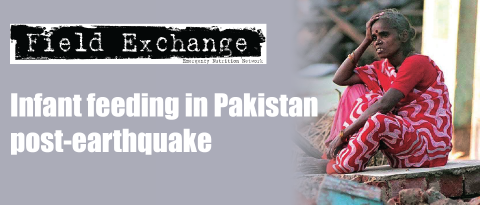Food security in Eritrea and Ethiopia
Summary of published research1
The food security impact of the 1998-2000 border war between Eritrea and Ethiopia, and its legacy, is examined in a recent paper published in Disasters. The war claimed an estimated 80,000 lives and displaced up to one million people. The paper is based on research and consultancy work on food security and conflict in Eritrea and Ethiopia that the author has been involved in since 1987, as well as on related published and grey literature.
The author argues that successive food crises in these two countries are better seen not as isolated episodes, but as part of a longer-term trend of rising livelihood and health vulnerability among sizeable populations that live at the margins. According to the author, reversing the secular decline in people's resilience to shocks necessitates a longer-term commitment to measures that are more imaginative, holistic and participatory and based on a better analysis of complex livelihood processes and their regional and international dimensions.
Furthermore, the 1998-2000 border war and its unresolved tensions have had adverse effects on livelihoods that continue to be felt in many ways. These are not easily separated out from each other and from other political, social, demographic and environmental factors.
One way in which the war affected food security was through its impact on donor attitudes. The author suggests that the tragically slow donor response to the impending food crisis was a reflection of international pressure to end the war. This occurred in spite of the donor policy, announced at the time, to cut development aid to the two warring governments while maintaining support for humanitarian assistance. Moreover, this donor policy of 'principled conditionality' is inherently problematic, as much of what is characterised as development aid comprises initiatives necessary for addressing food insecurity and reducing the risk of famine.
Donors can draw a number of lessons from this experience. There is clearly a need for humanitarian responses to be rapid, genuinely unconditional and sensitive to needs that extend beyond food aid. But donors also need to give more thought, especially where authorities are involved in conflict, to an ethical framework within which decisions can be taken about what kind of conditionalities, if any, should be applied to aid interventions beyond emergency relief. Such decisions should reflect not only diplomatic objectives informed by sounder political economy analysis, but also a wider and longer-term perspective on what is happening to livelihoods and food security between crises. This applies to pastoralists and agro-pastoralists, as well as other rural and urban communities.
1White P (2005). War and food security in Eritrea and Ethiopia, 1998-2000. Disasters, vol 29 (S1): S92-S113, 2005
Imported from FEX website


